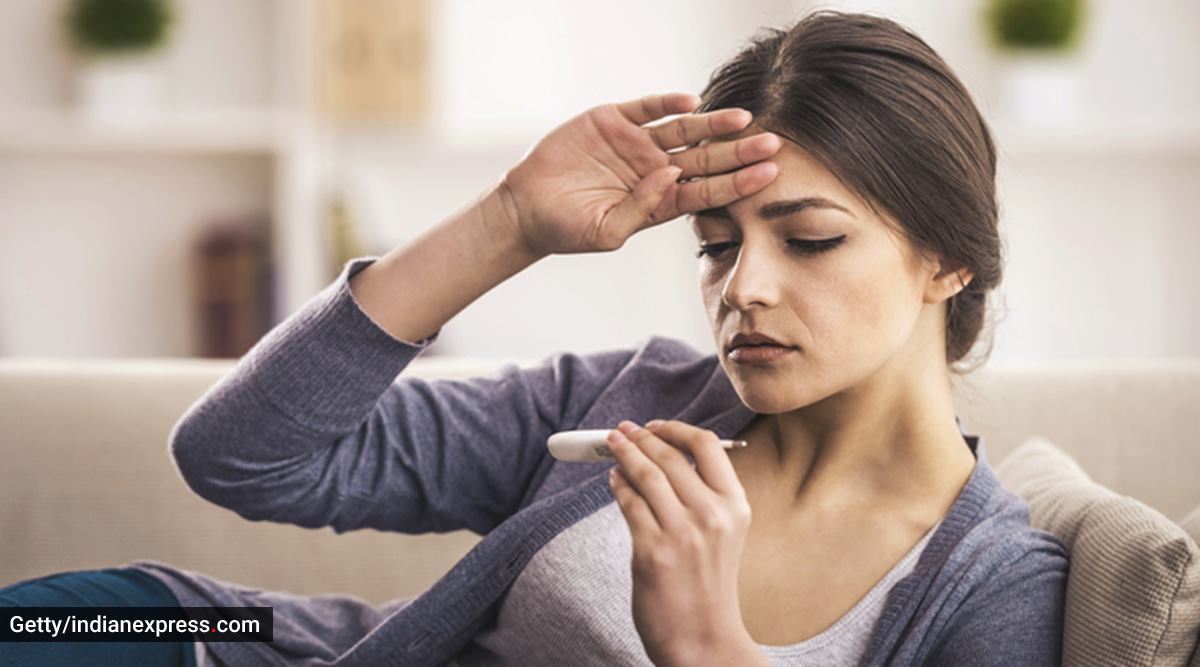Regular monsoon ailments and Covid-19: Know the difference
The monsoon season is associated with infections and diseases, mainly because of the change in weather, drop in humidity, waterlogging, mosquito breeding, etc. Monsoon illnesses usually present themselves as waterborne and airborne infections leading to diseases such as diarrhoea, cholera, dengue, typhoid, and other respiratory infections.
In the pandemic, however, it may be difficult to distinguish between Covid infection and other monsoon illnesses. Hence, it is important to not only be aware, but to also keep yourself safe and healthy.
Dr Anita Mathew, infectious disease specialist at Fortis Hospital, Mulund says that when a person is infected with monsoon diseases, they “unknowingly spray tiny droplets of bacteria and viruses that can be easily transmitted to others”.
“This bacterium enters a healthy body through the hands, mouth, or nose, in case they are standing close to an infected person. It takes around 16-48 hours for the bacterium to turn into asymptomatic infection. Thus, wearing face masks, maintaining hand hygiene, and social distancing are paramount, especially in these Covid times,” she says.
Here are some common monsoon diseases, their symptoms, and ways to understand the difference between Covid and them.
1. Dengue: It presents itself as sudden, high fever, along with nausea and vomiting, severe body ache, low platelet count, eye pain — typically behind the eyes — muscle, joint, or bone pain, and rashes.
2. Chikungunya: A person experiences high fever and chills, along with severe body ache and fatigue, rashes, acute joint pain and pain in the abdomen, back of the eyes, joints, or muscles.
3. Malaria: If you have malaria, you will have fever either daily, or every alternate day. You will also experience severe body ache, chills, sweating and shivering, along with diarrhoea, mental confusion, and a fast heart rate.
4. A viral fever: Common during monsoon season, a regular viral fever is accompanied by fatigue, muscle and joint pain, weakness, chills, dizziness, sweating, dehydration, weakness and loss of appetite.
5. Covid-19: And finally, the relentless Covid infection, which has a host of symptoms — fever, dry cough, rash on skin, or discolouration of fingers or toes, aches and pains, difficulty in breathing or shortness of breath, tiredness, conjunctivitis, headache, loss of taste or smell, diarrhoea, sore throat, chest pain or pressure, loss of speech or movement.
Dr Mathew says you can still enjoy the season if you are just a bit cautious:
* Try to keep your home and surroundings mosquito-free.
* Use mosquito repellent and wear full-sleeved clothes while stepping out.
* Avoid visiting crowded places to reduce your risk of viral infections.
* Drink only boiled water.
* Consume fresh homemade food.
* Make sure your home is well ventilated.
* Wash hands before eating any food.
* Avoid touching your nose and mouth with your hand without washing them.
“If you observe any changes in your body, especially the symptoms mentioned above, immediately consult a doctor. Don’t forget that any delay can cause undesired complications. Also, do not indulge in self-medication,” the doctor warns.
For more lifestyle news, follow us: Twitter: lifestyle_ie | Facebook: IE Lifestyle | Instagram: ie_lifestyle
For all the latest health News Click Here

